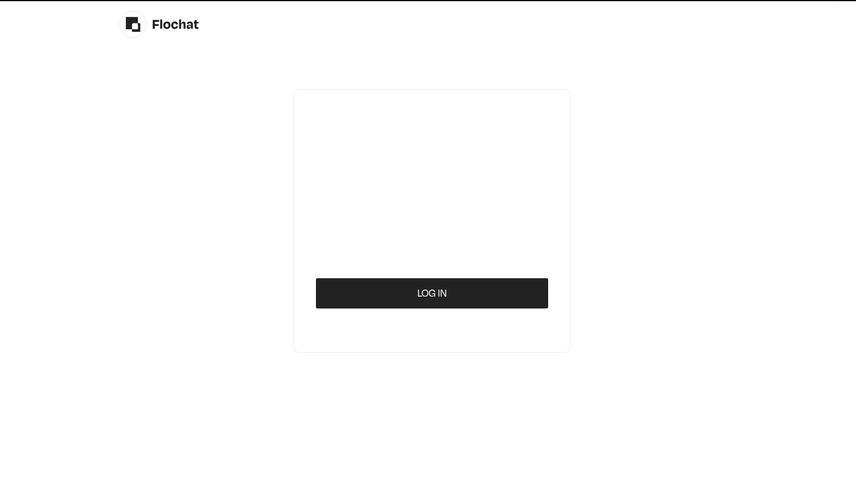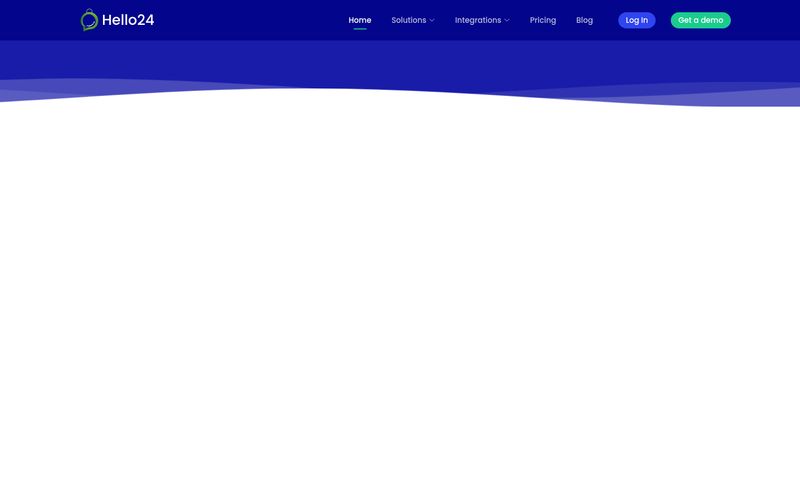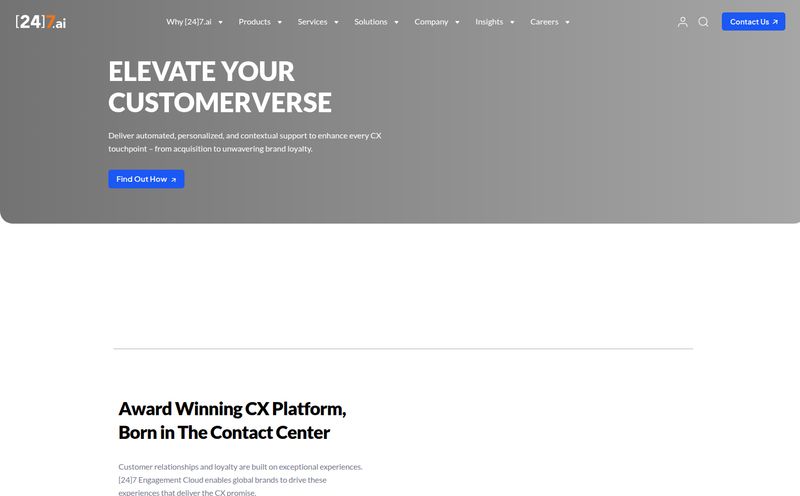Okay, let’s have a real chat. In my line of work, you see a lot of new tools. Every week there’s a new AI this, a new platform that, all promising to change the game. Most of them are just digital noise. So when I first heard about Lumi, an AI-powered astrology and tarot reader, my inner skeptic raised a very cynical eyebrow. Astrology from an algorithm? Tarot cards pulled by code? It sounded… sterile. Like getting a birthday card from your bank.
But I’ve also been tracking the massive trend in digital wellness and, let’s call it, modern mysticism. People are hungry for guidance, for a little bit of magic in their pockets. And I’ll admit, I'm one of them. I’ve spent more than I’d like to admit on Etsy tarot readings and have a well-worn copy of my own natal chart somewhere. So, I pushed my skepticism aside, poured a coffee, and decided to see if Lumi was just more noise or if there was a real signal in there. And honestly? What I found was pretty surprising.
So, What is Lumi, Anyway? A Modern Mystic's Toolkit
At its core, Lumi is an online platform that blends ancient practices like astrology and tarot with modern technology. Think of it less as a replacement for a human mystic and more like a super-accessible entry point. It offers two main things: detailed astrology birth charts and interactive, AI-driven tarot readings. The big idea is to give you personalized insights into your life, your personality, your… well, your stuff, without having to book an appointment three weeks in advance.
The platform uses your birth information (date, time, and location) to generate a full-blown natal chart, and its AI interprets the planetary positions to give you feedback. For the tarot side, you ask a question, focus your energy (as much as one can on a website), and the AI pulls and interprets a spread for you. It’s a fascinating mix of old-world symbolism and new-world processing power.

Visit Lumi: Astrology & Tarot
My First Impressions Navigating the Cosmic Dashboard
Logging into Lumi for the first time, I was immediately struck by how clean it is. The user interface is smooth, intuitive, and not cluttered with the mystical-kitsch aesthetic you sometimes see. It’s modern and respects your intelligence. I started with my birth chart because, well, narcissism. Entering my details was simple, and the chart was generated almost instantly.
Instead of just a confusing circle full of symbols, Lumi breaks it down. It explains your Sun, Moon, and Rising signs in digestible chunks. It felt personal. The language wasn't generic horoscope fluff; it was specific, pulling details from the houses and aspects in a way that felt… weirdly accurate. It nailed my communication style (thanks, Mercury in the 3rd house) in a way that was a little unnerving. It felt less like a cold reading and more like a conversation with someone who had done their homework.
The Features that Actually Matter
Okay, a pretty interface is nice, but what can it do? This is where Lumi starts to show its real value, and also where you start to see the line between the free and paid versions.
AI-Powered Tarot Readings (But Does it Have a Soul?)
This was the feature I was most skeptical about. I’ve always felt a tarot reading is an energy exchange. So how can an AI replicate that? I asked a vague question about my career path, and it dealt a three-card spread. The interpretation was… shockingly good. It was coherent, insightful, and picked up on the nuances of my question. The real magic, a feature in the premium plan, is the ability to ask follow-up questions. I asked, “Can you elaborate on the obstacle card?” and the AI provided a deeper, more contextual answer. That’s a game-changer. It’s not just a static reading; it's a dynamic conversation. Does it have a soul? No. But it has a massive database of symbolic meanings and the ability to connect them logically, which is its own kind of magic.
Your Personal Cosmic Blueprint with Birth Charts
The birth chart feature is, in my opinion, one of the strongest parts of Lumi. For anyone curious about astrology beyond their sun sign, this is a phenomenal learning tool. It explains what the planets and houses represent and then tells you what your specific placements mean. The premium version unlocks deeper interpretations and, crucially, information on transits—how the current movement of the planets is affecting your personal chart. This turns it from a static personality profile into a dynamic, real-time cosmic weather report.
The Human Touch with Astrology Chat
Here’s the thing that really won me over. Lumi isn’t just an AI platform. It also offers the ability to chat with real, human astrologers. This hybrid model is brilliant. You can get your feet wet with the AI, learn the basics, and then, when you have a question that needs a human touch, you can reach out to an expert. This addresses the biggest drawback of AI-only platforms. It acknowledges that sometimes, you just need to talk to a person. It shows they understand their audience and the nature of the service they're providing.
The Good, The Bad, and The Cosmic
No tool is perfect, right? After playing around for a while, a few things became clear. The biggest pro is the accessibility. Lumi puts some seriously complex information into an easy-to-understand format. For anyone who’s been intimidated by astrology, this is an incredible gateway. The combination of services is also a huge plus. You can pull a tarot card about a specific issue and then cross-reference it with what's happening in your astrological transits. It’s a very holistic approach.
On the flip side, the free plan is quite limited. Five readings or interpretations a day sounds like a lot, but you burn through them quickly if you're genuinely curious. It’s more of a free trial than a long-term free plan. And of course, the age-old caveat: the accuracy of any divination tool, AI or not, is partly in your interpretation. If you’re looking for a magic 8-ball to give you a simple yes/no, this ain't it. It’s a tool for reflection, not a crystal ball for definitive answers.
Let's Talk Money: Lumi Pricing Breakdown
So, what's the damage? Lumi’s pricing structure is pretty straightforward, which I appreciate. You’re not trying to solve a riddle to figure out what you get.
| Plan | Price | Best For |
|---|---|---|
| Free | $0 | The casually curious. You get up to 5 basic readings a day to dip your toes in the water. |
| Premium | $8.99 / month | The dedicated seeker. Unlocks up to 1000 readings, follow-up questions for tarot, full astrological insights, and transit info. |
| Yearly Deal | $24 / year | The committed explorer. This is a limited offer, but the value is insane. Its basically two coffees for a year's worth of deep insights. |
For me, the yearly deal is a no-brainer if you find yourself using it even semi-regularly. Twenty-four bucks for a year is an incredible value proposition compared to the cost of a single professional reading. The free plan is perfect for seeing if you vibe with the platform, but the premium features are where the real substance is.
Who is Lumi Really For?
After all this, I think I know who Lumi is for. It’s for the modern mystic. The person who listens to podcasts about spiritual wellness on their commute, who has a crystal or two on their desk but also a finely tuned Google Calendar. It’s for the astrology-curious who don’t know where to start, and for the seasoned pros who want a quick, reliable tool in their back pocket. It's for anyone who believes that self-reflection can be aided by technology, and that a little bit of ancient wisdom can go a long way in our chaotic modern world.
It’s not for the hardcore traditionalist who believes divination can only happen in a sacred, candle-lit room. And that's okay. But for the rest of us living in the messy, wonderful in-between? It’s a pretty compelling tool.
Frequently Asked Questions about Lumi
Is Lumi's AI as good as a real tarot reader?
It's different. The AI offers incredible consistency and can draw on a vast database of information for its interpretations, especially with the follow-up questions. However, it lacks the human intuition, empathy, and life experience a seasoned reader brings. I see it as a fantastic tool for daily guidance and learning, while a human reader is better for deep, complex life questions.
How accurate is the astrology on Lumi?
The astrological calculations are based on the same data any professional astrologer would use, so the chart itself is accurate. The interpretations are AI-generated but surprisingly nuanced and specific. As with any astrological reading, its value comes from how you reflect on and apply the information to your own life.
Can I trust Lumi with my birth data?
This is a valid concern for any online service. Lumi needs your birth date, time, and location to create an accurate chart. It's always smart to check the platform's privacy policy, but generally, platforms like this use the data solely for the purpose of their service and don't sell it. They operate like any other personalized digital service.
Is the Premium plan worth the cost?
If you use it more than once a week, absolutely. The ability to ask follow-up questions on tarot readings and access your full astrological transits transforms Lumi from a novelty into a genuinely useful tool for self-development. At $24/year for the special deal, it costs less than a single reading from a professional.
What kind of questions can I ask the AI tarot?
Open-ended questions work best, just like with a human reader. Instead of "Will I get the job?", try "What should I focus on to advance my career?" or "What energy surrounds my current professional situation?" This gives the AI more to work with and provides you with more actionable advice.
My Final Take on This Digital Oracle
I came into this review expecting to write a clever takedown of another soulless tech product. I’m leaving it… a convert. Not a blind follower, but a genuinely impressed user. Lumi isn’t trying to replace the human element of mysticism, it’s building a new door to it. It has managed to create something that feels both intelligent and insightful.
At the end of the day, tools like Lumi are mirrors. They reflect our own questions back at us, framed in a new light. Whether that light comes from a flickering candle or a glowing screen doesn't change the fact that looking in the mirror is always a worthwhile thing to do. And Lumi happens to be a very well-designed, surprisingly profound mirror.



